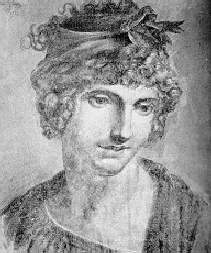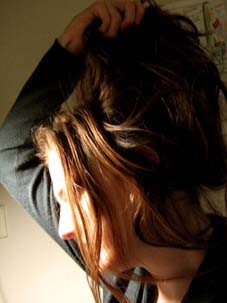 In 1789, in the French Revolution, French citizenship was defined in the document, Declaration of the Rights of Man and of the Citizen. From 1789 until 1944, French citizenship was limited to males -- even though women were active in the French Revolution, and many assumed that citizenship was theirs by right of their active participation in that historic liberation battle.
In 1789, in the French Revolution, French citizenship was defined in the document, Declaration of the Rights of Man and of the Citizen. From 1789 until 1944, French citizenship was limited to males -- even though women were active in the French Revolution, and many assumed that citizenship was theirs by right of their active participation in that historic liberation battle. Olympe de Gouges (1748-1793), a playwright of some note in France at the time of the Revolution, spoke for not only herself but many of the women of France, when in 1791 she wrote and published the Declaration of the Rights of Woman and of the Citizen. Modeled on the 1789 Declaration of the National Assembly, defining citizenship for men, this Declaration echoed the same language and extended it to women, as well.
For asserting this equality, and repeating the assertion publicly -- for refusing to be silent on the rights of Woman -- and for associating with the wrong side, the Girondists, as the Revolution became embroiled in new conflicts -- Olympe de Gouges was arrested in July 1793, four years after the Revolution, and more than two hundred years ago. She was sent to the guillotine in November of that year.
A report of her death at the time said:
"Olympe de Gouges, born with an exalted imagination, mistook her delirium for an inspiration of nature. She wanted to be a man of state. She took up the projects of the perfidious people who want to divide France. It seems the law has punished this conspirator for having forgotten the virtues that belong to her sex."
In the midst of a Revolution to extend rights to more men, Olympe de Gouges had the audacity to argue that women, too, should benefit. Her contemporaries were clear that her punishment was, in part, for forgetting her proper place and proper role as a woman.
Source: womenshistory.about.com


1 comment:
It is quite bad actually. I just double-checked and it is correct: women were not allowed to vote in France until the liberation after WW2 (in Denmark it was 1915). However, another of our European neighbours was even worse: in Switzerland women got voting right as late as 1971!
Post a Comment